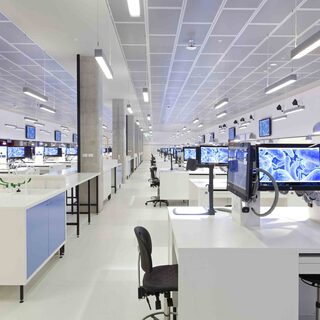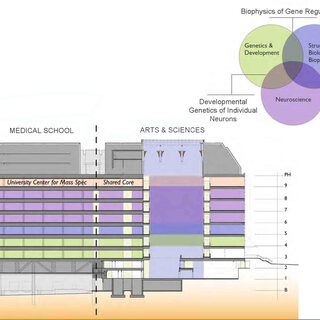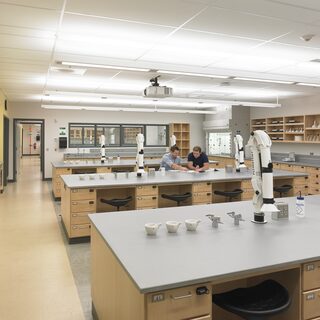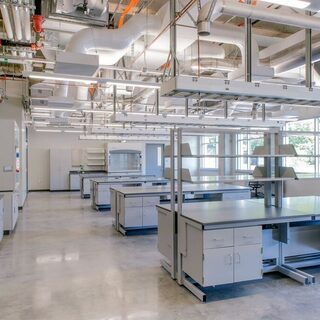Tradeline's industry reports are a must-read resource for those involved in facilities planning and management. Reports include management case studies, current and in-depth project profiles, and editorials on the latest facilities management issues.
Latest Reports
Vicki Sara Building
The new Vicki Sara Building on the urban campus of the University of Technology in Sydney, Australia, includes a massive “Super Lab”—a single open floor plate of more than 8,600 sf that serves 220 students in any configuration up to a maximum of 12 separate classes simultaneously. From 2,500 to 3,000 students, over several sessions a day, pass through the lab each week. Powered by IT integration, the Sydney facility serves students studying chemistry, biology, cell biology/biochemistry, physics, physiology, and pharmacy compounding.
Other building features include:
UPenn Replaces the HVAC System of a Fully Occupied, Operational Chemistry Facility
Signing the American College and University Presidents’ Climate Commitment pledge is one thing, but complying with it is quite another. At the University of Pennsylvania, compliance meant renovating the HVAC systems in a 140,000-gsf chemistry research and teaching facility built in 1973. Converting the building’s constant-volume ventilation system, which provided 22 air changes per hour (ACH) 24 hours a day, to a variable-volume system providing 4 to 12 ACH would yield massive energy savings. The catch? Doing it without kicking anyone out.
Successful Planning of Interdisciplinary Science Facilities
At the inception of a new interdisciplinary science building, bricks-and-mortar considerations must take a back seat to a big-picture view of issues related to organization, funding, governance, and the long-range vision of the institution. The resolution of these issues early on leads to projects that are more successful—not necessarily in terms of cost savings, but in the essential criterion of aligning a new facility with specific academic strengths and the broader institutional mission.
State University of New York, Buffalo State, Science Building No. 15
SUNY Buffalo State has completed the second phase of a three-phase project that will transform its science education facilities by consolidating multiple science departments into a single facility, establishing a hub for the STEM curriculum. Originally built in 1962, the 171,000-sf Science Building No. 15 undertook a $107 million expansion project to create a science complex that is one of the few interdisciplinary facilities in the SUNY system.
Learned Hall Engineering Expansion Phase 2 (LEEP2)
The University of Kansas has completed the second phase of a major expansion of its engineering facilities to accommodate a 50 percent increase in the number of engineering graduates. The Learned Hall Engineering Expansion Phase 2 (LEEP 2) completes the new engineering complex by connecting two existing buildings: Learned Hall, built in 1963, and the Measurement, Materials and Sustainable Environment Center (M2SEC), completed in 2012.





